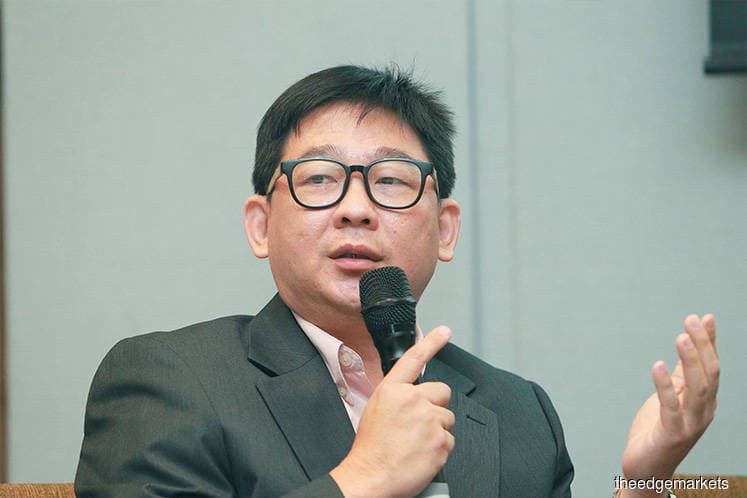
This article first appeared in The Edge Malaysia Weekly on October 29, 2018 - November 4, 2018
While others are still investigating the possibilities presented Industry 4.0, Medical Devices Corp Sdn Bhd director Loke Khing Hong is moving full steam ahead. He intends to disrupt the kidney treatment subsector through an Internet of Things (IoT)-powered device that he has invented, which simplifies the dialysis process.
Dialysis treatments are expensive and often debilitating ordeals for those suffering from kidney failure, he said. “You can opt for a kidney transplant, but finding a compatible donor will take a lot of time. There are two forms of dialysis treatments available - haemodialysis and peritoneal dialysis.
He was speaking on “Transforming Dialysis with IoT: towards Made in Malaysia 2025” at the recent The Edge Industry 4.0 Forum: Embracing Digitisation.
If a patient opts for haemodialysis they will have to go to a hospital or treatment centre every other day for an invasive seven hour procedure which makes them, effectively unemployable. But if they opt for automated peritoneal dialysis, the machines are 16kg and not very portable.
Loke, an accountant training, has developed a unit that weighs just 3kg, and is equipped with state-of-the-art sensors that monitor a variety of parameters during the dialysis treatment.
“Intelligent sensors in the machine read and record the data on a cloud-based server. The patient’s physician can then access this data and monitor the patient’s overall condition during treatment in real time, albeit remotely,” he said.
Given the country’s grim healthcare statistics, a cheap, portable and high-quality dialysis option could literally be a lifesaver.
The importance of developing a dependable, local supply chain for dialysis cannot be understated. For Loke, it is a matter of national security.
In addition to national security, there is a big cost incentive to developing a local, end-to-end dialysis industry. Currently, the bulk of the technology and hardware are imported. a huge cost burden on the national healthcare system.
“2025,” Loke said, “We are going to have 65,000 patients, and each patient’s dialysis treatment will cost RM30,000. That translates into roughly RM2 billion a year,” he says.
The IoT-enabled automated peritoneal dialysis machine, as envisioned Loke, could be a multi-billion-ringgit game changer.
Save by subscribing to us for your print and/or digital copy.
P/S: The Edge is also available on Apple's AppStore and Androids' Google Play.